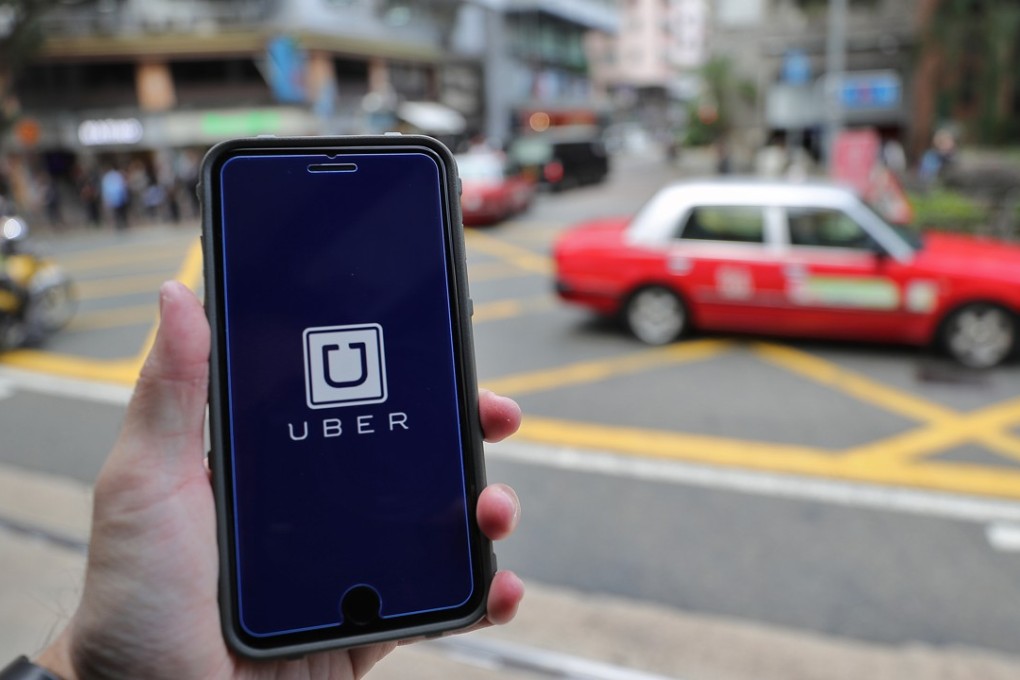Uber banks on successful Singapore game plan to win over combative Hong Kong cabbies as partners
But taxi operators, though swayed by the UberFlash service that matches users with either taxis or private cars, insist they’ll only play ball if Uber ditches its ‘illegal’ ride-sharing business

Uber is banking on its new UberFlash service – that matches users with either taxis or private cars – to win over disgruntled Hong Kong taxi drivers, as it continues an uphill battle to make headway in a market where ride-sharing is illegal.
Hong Kong cabbies hold protest against ‘unlicensed taxis’ on Uber
Hopes at the US-based firm are high that the new matching service, that has taken off in Singapore and Bangkok and upped cabbies’ takings in the former, will pacify local taxi firms who see Uber’s ride-hailing system as anathema to their livelihood.
Senior Uber executives revealed the plan to the Post at the firm’s San Francisco headquarters recently.

There, the company’s chief operating officer Barney Harford stressed its focus on improving relationships with different stakeholders and governments across the markets it was in, in line with new CEO Dara Khosrowshahi’s efforts, since taking over last August, to be more conciliatory and bring to an end the clashes Uber previously had with regulators.
Harford said Uber would make sure it was “abiding by the laws”, adding: “It’s about growth the right way and making the right position and trade-offs with those cities.”
Why shabby taxis rule Hong Kong streets … and Uber can’t get a break
Uber has struggled to get a break in Hong Kong, whose population of over 7 million is served by 18,000 licensed taxis and about 40,000 drivers.